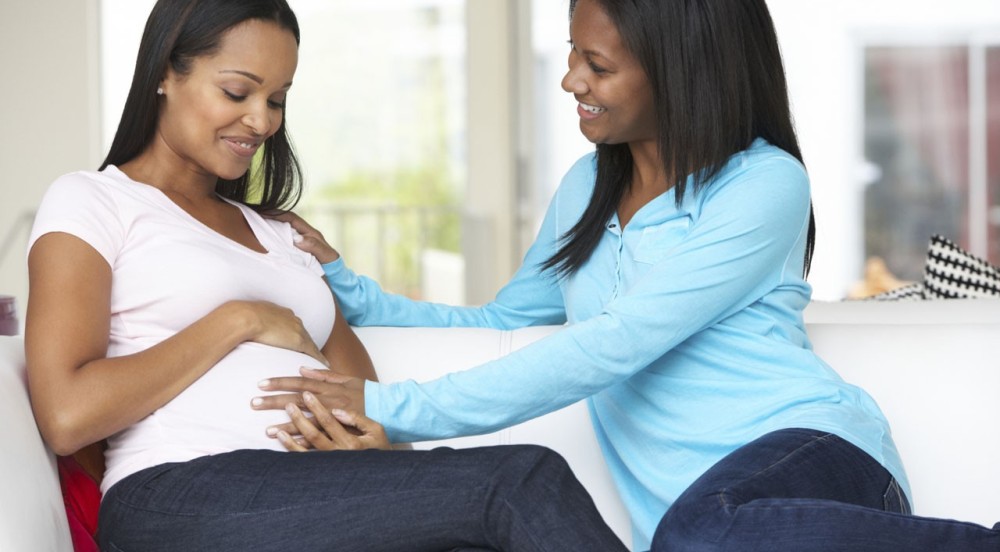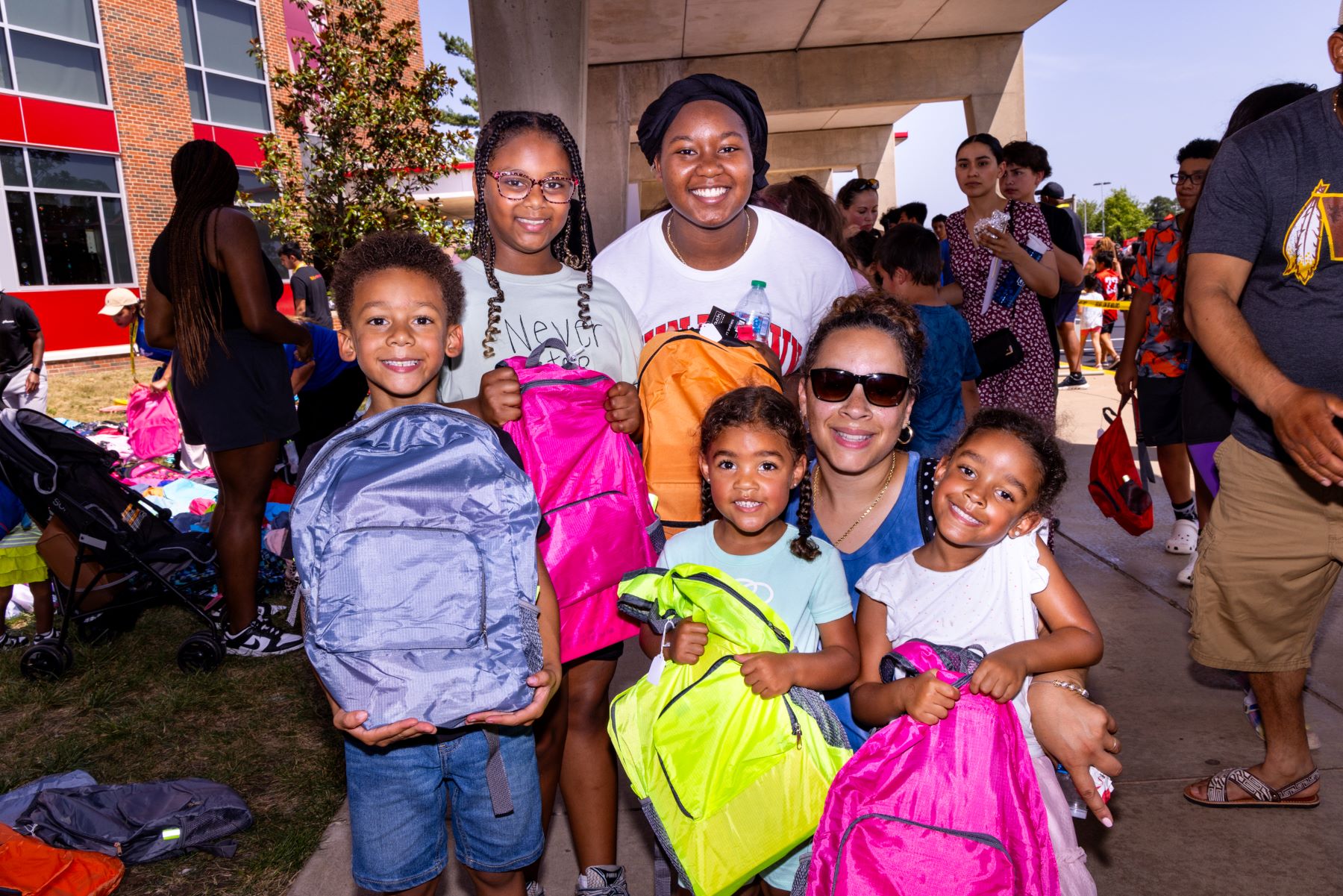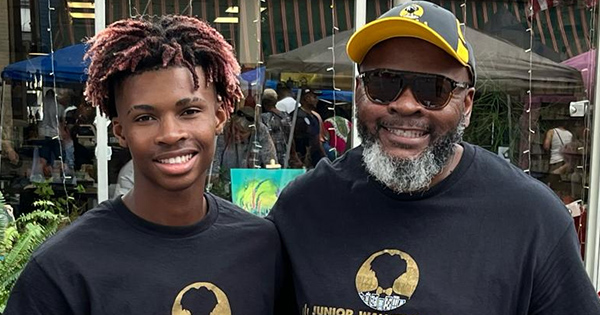Doula services now covered under Virginia Medicaid expansion
Doula Sequoi Phipps-Hawkins has heard plenty of stories about doctors brushing off the concerns of pregnant Black women.
“I heard from some of my white colleagues and friends that they just never felt unsafe. They never questioned any of their recommendations for their doctors,” said Phipps-Hawkins.
It’s a stark contrast to the treatment some of her friends of color encountered during their birthing experience.
Phipps-Hawkins said they told her things like, “My doctor didn’t believe me that I was in labor” or “My doctor didn’t believe that I was in pain and they delayed getting me pain medication and I had to deliver without pain medication when I requested it.”
Those experiences, coupled with learning about the maternal mortality crisis and how it disproportionately impacts Black women, led her to become a doula – a profession whose services Virginia is encouraging pregnant people to use through a new Medicaid program.
Virginia is the fourth state in the nation to offer community doula services to people enrolled in Medicaid. Twenty-six state-certified doulas have been approved to work with Medicaid since the program began this spring, according to Christina Nuckols, a spokesperson for the Virginia Department of Medical Assistance Services. The department hopes to have 100 by the end of this year and 1,000 by the end of 2023.
How do doulas help?
Doulas have been found to improve maternal health, especially in low-income and minority populations, according to a recent study published in The Lancet.
The program expansion comes at a time when preliminary state data is showing Virginia’s maternal mortality rate more than doubled from 2018 to 2020. In 2020, non-Hispanic Black women nationwide experienced maternal mortality rates nearly three times higher than those of their white counterparts, according to the National Center for Health Statistics.
The majority of these deaths are preventable, and the U.S. “can do much better,” said Chethan Bachireddy, chief medical officer for DMAS.
“We know a lot about what is and isn’t contributing to mortality and morbidity,” Bachireddy said. “That really inspired us to start to act and so that brought us to the work around doulas.”
Now, with the expansion of Medicaid coverage to doula care, doulas like Phipps-Hawkins can offer their services to the more than 22,000 pregnant women currently enrolled in Medicaid in Virginia.
How does the program work?
A woman seeking doula services under Medicaid must first get a recommendation from a physician or licensed practitioner. Once connected with a doula, she has access to a total of nine prenatal and postpartum visits, each lasting 60 minutes, except for the initial prenatal visit, which can last up to 90 minutes, as well as attendance at delivery. A person may have access to more visits if it is medically necessary.
During doula appointments, “there’s a lot of focus on the birth parents and their physical wellness, their emotional wellness and their mental wellness,” said Nikita Achalam, workforce development manager for Urban Baby Beginnings, a maternal care organization. “Are you having your needs met so that you can focus on the very important task of growing this life? If not, how can we help you solve those things?”
Doulas will be reimbursed after each visit, receiving a total of $859 after completing all visits, as well as $50 each for additional services like connecting an infant to pediatric care or a mother to postpartum obstetric care.
People seeking doula services can get connected to one by reaching out to maternal care organizations like Urban Baby Beginnings and Birth in Color RVA, both of which also provide doula certification training.
Birth in Color RVA Executive Director Kenda Sutton-EL said approximately 35 doulas will soon be Medicaid approved through her organization’s training, with another 40 to become state certified within the next few months.
Urban Baby Beginnings is graduating its own group of Medicaid-approved doulas this October, Achalam said.
“We know that this implementation and this strategy to provide doulas is going to reduce mortality rates and help our mothers overall,” said Stephanie Spencer, executive director of Urban Baby Beginnings and a doula herself.
Both Sutton-EL and Spencer were essential in the years-long lobbying efforts to include the doula benefits under Medicaid, said Cheryl Roberts, acting director of DMAS.
What makes it unique?
Virginia’s strategy for expanding doula care is unique in that it relies on partnerships with managed care plans, allowing doulas to be integrated into all aspects of the health care system, not just through Medicaid.
Medicaid managed care plans fund doula training programs by giving grants to organizations like Urban Baby Beginnings, which received $250,000 from United Healthcare to build a doula workforce across the state and $825,000 from the Anthem Foundation to expand maternal hubs this year.
The programs include training on how to do contracts and administrative work under a health plan, which normally wouldn’t be included in a typical training program.
The health plans “have been 100% engaged in this and said we want doulas to be trained and actually started funding training,” Roberts said. “We’re actually seeing this kind of synergy and energy across the board because everyone is committed to making this work.”
Other states like Minnesota and Oregon also have doula services included in their state Medicaid programs, but their efforts have not been as successful due to a lack of integration with health plans, Roberts said.
Looking forward
New Jersey also moved to expand doula services through Medicaid last year, but Roberts said Virginia is still going to “beat” the state in terms of who can provide the most doulas.
The most rewarding part of being a doula is the ability to transform someone into feeling empowered when they bring their baby into the world, said Spencer.
“I get the opportunity to work with so many people and they are disempowered in their care because they just haven’t been listened to,” said Spencer. “To be able to engage with me, to feel like someone (feels) like, ‘I can make a difference in my own life because I have my own voice and I have people that trust me to use it.’ I think that transformation is so special.”
Virginia’s first Medicaid member to receive community doula services gave birth last weekend, a spokesperson for DMAS said.
To learn more about the program or how to become a state-certified community doula, click here.
(Virginia Mercury is part of States Newsroom, a network of news bureaus supported by grants and a coalition of donors as a 501c(3) public charity. Virginia Mercury maintains editorial independence. Contact Editor Sarah Vogelsong for questions: info@virginiamercury.com. Follow Virginia Mercury on Facebook and Twitter.)



